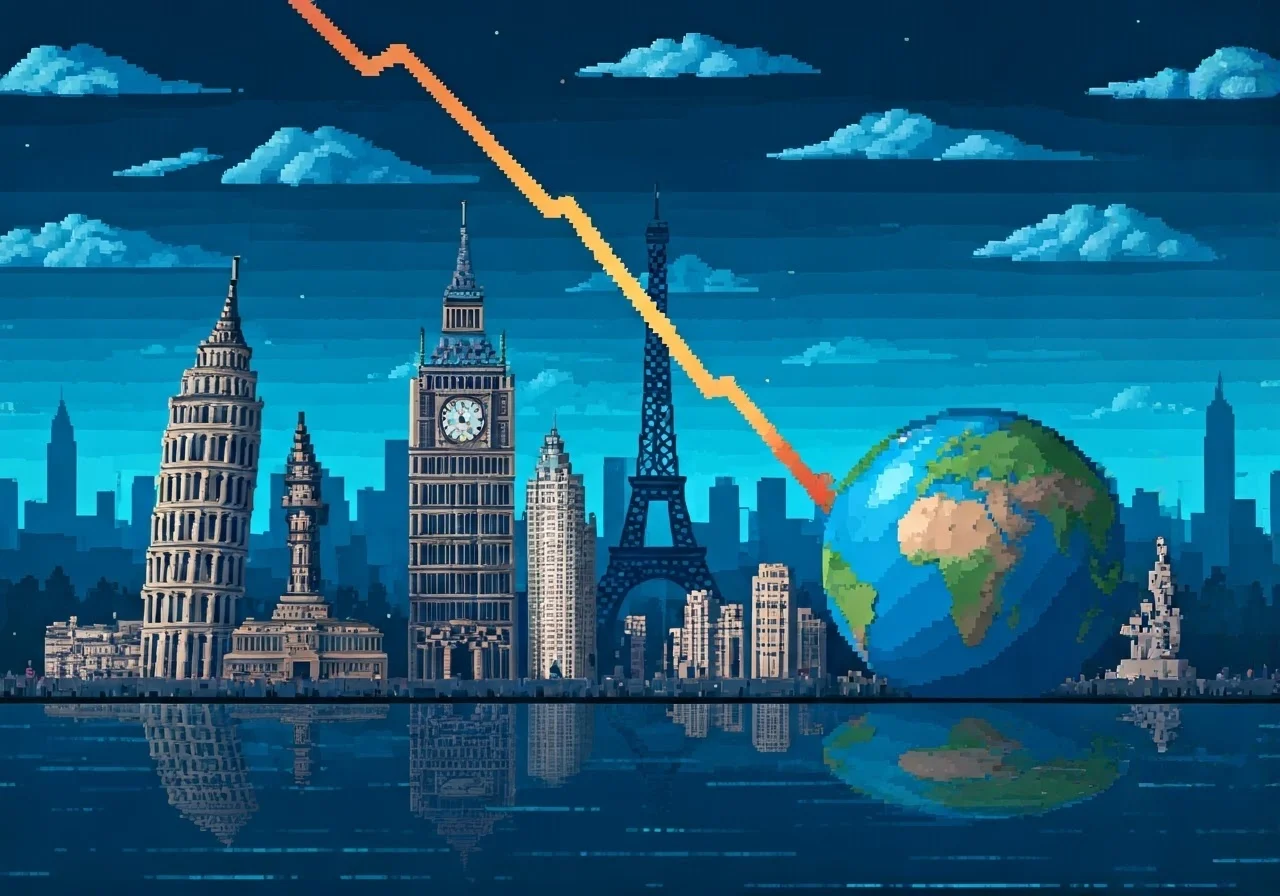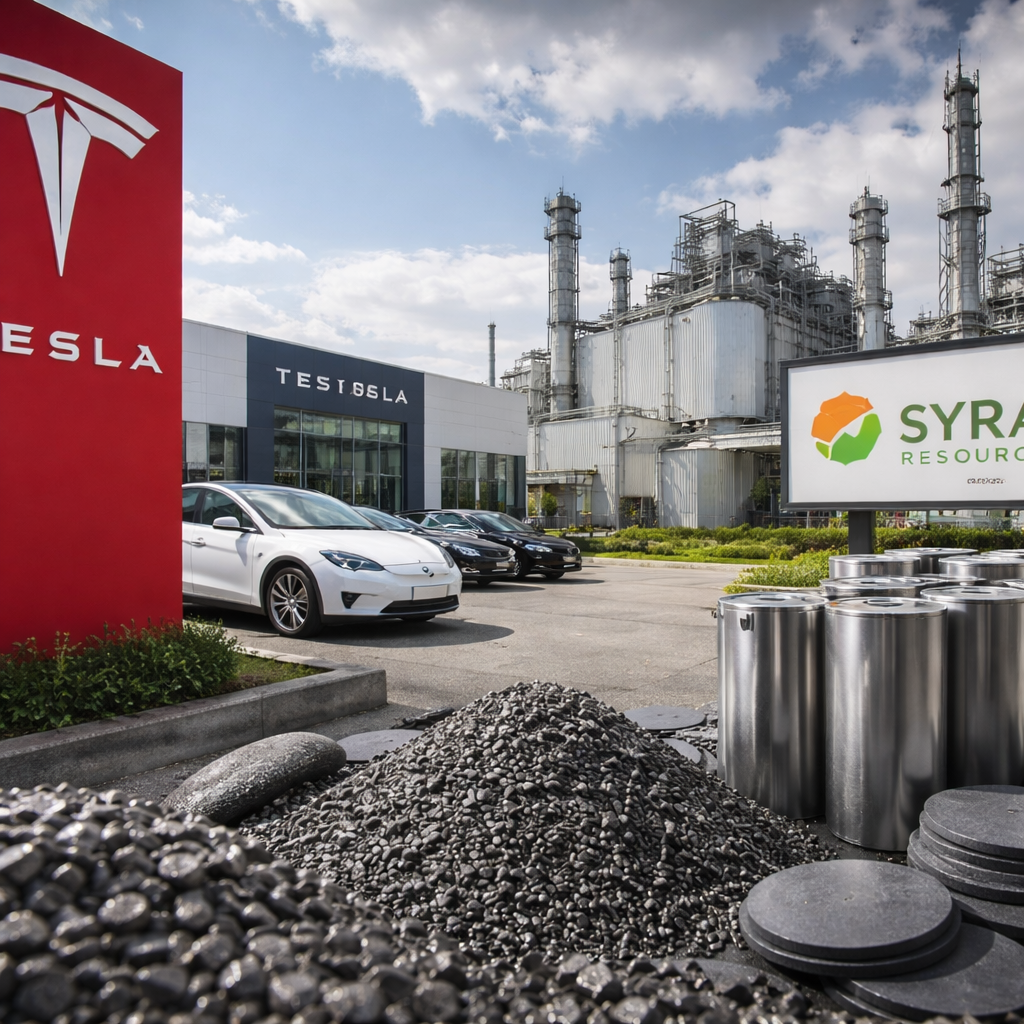Key Highlights
- Global stock markets experienced a significant decline on Thursday following US President Donald Trump’s announcement of new tariffs on imports.
- The Dow Jones Industrial Average plummeted by over 3%, while the Nasdaq witnessed a steep drop of more than 4%.
- The price of gold, considered a safe haven asset, reached a record high as investors sought stability amidst the market turmoil.
- The new tariffs, affecting a wide range of goods from countries including China and the European Union, have ignited fears of a global trade war.
- Market analysts predict significant global economic consequences, as businesses grapple with the increased costs imposed by the tariffs.
Introduction
 The White House has announced new tariffs this Wednesday, in an event Trump has called Liberation Day. This news has surprised global markets and raised concerns about a trade war. These tariffs create uncertainty everywhere, making investors worried about how this could affect the global economy. As countries prepare for what might happen next, many are asking if this situation will turn into a long-lasting trade war with big impacts.
The White House has announced new tariffs this Wednesday, in an event Trump has called Liberation Day. This news has surprised global markets and raised concerns about a trade war. These tariffs create uncertainty everywhere, making investors worried about how this could affect the global economy. As countries prepare for what might happen next, many are asking if this situation will turn into a long-lasting trade war with big impacts.
The Immediate Impact of Trump’s Tariffs on Global Stock Markets
 The quick response to President Trump’s tariff announcement was a big drop in stock markets around the world. Investors were worried about the possible effects of a trade war on global growth. Many sold off their stocks quickly. Major stock indices in the United States, Europe, and Asia all finished the day much lower.
The quick response to President Trump’s tariff announcement was a big drop in stock markets around the world. Investors were worried about the possible effects of a trade war on global growth. Many sold off their stocks quickly. Major stock indices in the United States, Europe, and Asia all finished the day much lower.
This sell-off happened because people feared the tariffs would raise prices for consumers and lower profits for companies. This could lead to slower economic growth. The tariffs have also made many businesses uncertain about the future, making it hard for them to plan ahead.
How Tariffs Triggered a Sell-off in Global Markets
The tariff announcement shocked global markets. It caused a huge sell-off, making the Dow Jones Industrial Average drop by over 3%. Investors are worried about how a trade war could affect global growth. They sold shares quickly, which led to big drops in major indices. The uncertainty around the tariffs has made investors cautious. They are less willing to keep risky assets like stocks.
This situation shows how closely linked global markets are. Decisions made in one country can impact the rest of the world. The tariffs have added a lot of uncertainty to the global trading system. This has made investors nervous and more likely to panic sell.
With the trade war talk heating up, it is clear that global markets will face a tough road ahead.
The Reaction of Major Market Indices in the United States
The Dow Jones Industrial Average, an important measure of Wall Street’s performance, dropped by over 3% after the tariffs were announced. This shows the fear that many investors have. The Nasdaq, which focuses on technology companies, also fell significantly, dropping more than 4% as investors sold off stocks, worried about a future global economic slowdown.
This reaction highlights the worries on Wall Street about a potential trade war. Investors are especially anxious about how it may affect company profits and what people will spend, which are two main parts of economic growth.
As the trade dispute grows, people watching the market expect more ups and downs and uncertainty. They will pay close attention to major indices like the Dow and Nasdaq to find out how these tariffs could impact the US economy in the long run.
The tariffs also pose a significant risk to prices in the United States, as tariffs imposed on Taiwan and Vietnam, significant providers for chips and fast fashion items respectively, will largely affect American consumers. Adittionally, Japan’s government in Tokyo, South Korea’s government in Seul, and China’s government in Beijing have already announced they will coordinate their retaliation levies on the United States. This is a historical move, as the three countries have historical enmity.
Risk of Recession in the World
US President Donald Trump’s decision to impose tariffs has fueled fears of a global recession. Economists are concerned that the tariffs, coupled with retaliatory measures from other countries, including Canada, Mexico, and India, could dampen global demand and trigger a worldwide economic downturn.
The tariffs threaten to disrupt global supply chains, increase costs for businesses and consumers, and undermine confidence in the global economy. This uncertainty has led to a decline in investment and hiring, further contributing to the risk of a recession.
| Region | Impact of Tariffs |
|---|---|
| United States | Lower economic growth, job losses in manufacturing |
| European Union (EU) | Reduced exports, higher prices for consumers |
| China | Slower economic growth, potential currency devaluation |
| Emerging Markets | Reduced capital inflows, weaker currencies |
Conclusion
In conclusion, the recent drop in global stocks after Trump’s tariffs shows how connected the global economy is, particularly over the last month. The quick reaction led to a sell-off, which raised worries about a possible worldwide recession. It is important for investors to understand how tariffs affect trade and stock markets. They need to stay informed and think about different investment strategies to handle market ups and downs. As things change, being alert and flexible will help manage risks and find opportunities in global markets.
Frequently Asked Questions
What are Trump’s tariffs and why were they introduced?
The Trump administration placed reciprocal tariffs on billions of dollars worth of US imports, mostly from China. These tariffs act like taxes on goods brought into the country, making them more expensive for American shoppers. The administration says these tariffs are important to protect American jobs and industries from unfair trade practices. They think that China’s actions hurt US businesses and workers. The purpose of the tariffs is to make competition fairer and lessen the trade deficit. But critics say that these tariffs could hurt American consumers and businesses instead. They worry that prices will go up and supply chains will get disrupted. This situation could lead to retaliatory tariffs from China, which might increase trade tensions between the two countries.
How do tariffs affect global trade and stock markets?
Tariffs can disturb global trade. They make US imports costlier, which might lower trade volumes. This situation causes uncertainty. As a result, investors may worry about a trade war. If China fights back with tariffs on US products, it could increase tensions. This would also affect European markets that depend on trade with both the US and China.
Which sectors are most impacted by these tariffs?
The industries that are most affected by the tariff announcement include those that depend a lot on Chinese imports and global supply chains. The tariffs on goods like steel and aluminum hit manufacturing industries hard. The technology and consumer goods sectors also feel the strain. These changes have added to the ups and downs in the Dow. If the trade dispute goes on, it could affect many other sectors.
Can tariffs lead to a global recession?
US President Donald Trump’s taxes on Chinese imports have started worries about a possible global recession. If these taxes grow into a full trade war, it could lower global demand. This situation could harm economies all around the world, including Europe, by messing up trade and raising uncertain feelings.
What strategies can investors use to navigate market volatility due to tariffs?
Navigating the ups and downs of the market due to tariffs needs careful thought. You might need to change your investment plans. A head of investment strategy on Wall Street might suggest spreading out your investments to lower risk. This could mean looking at areas that are not heavily affected by trade issues. You could also consider different investments beyond the Dow and Nasdaq, as they are directly influenced by tariffs and trade worries.




